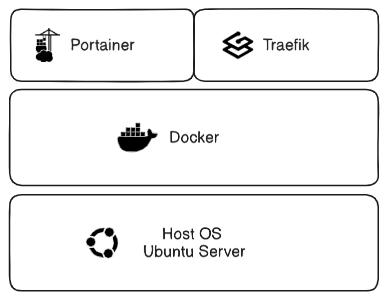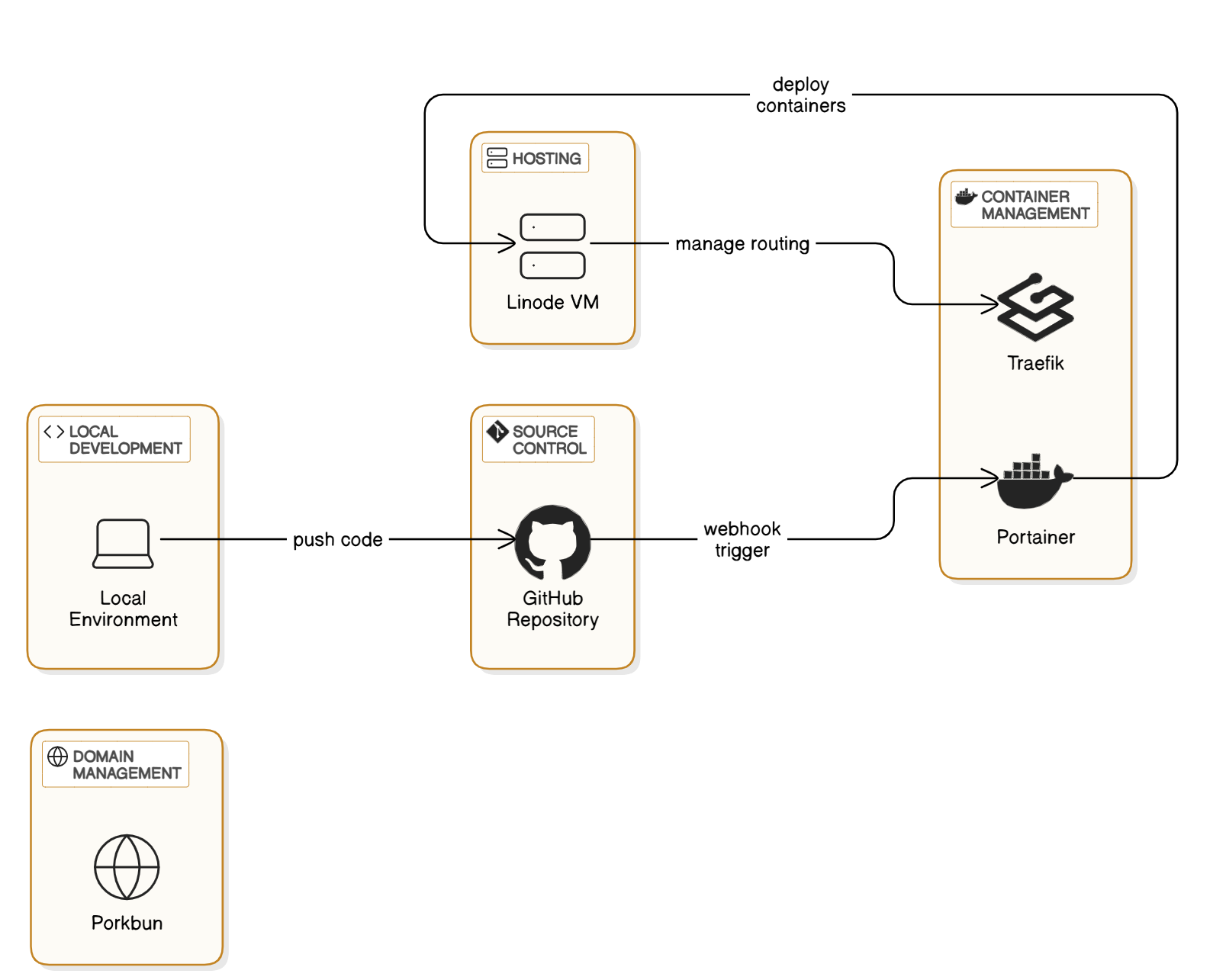Infrastructure Overview
My personal lab environment runs on a Linode-managed VM, serving as a Docker host for various containerized applications. Here’s the core infrastructure stack:
- Host Provider: Linode Docker-managed VM
- Domain: looth.io (managed through Porkbun)
- Container Management: Portainer
- Reverse Proxy: Traefik
- Version Control: GitHub
Architecture Design
The setup implements a GitOps-driven workflow, enabling automatic deployments through Portainer’s webhook integration with GitHub. This architecture supports rapid development and deployment of containerized applications.


Implementation Details
Development Workflow
- Local development and testing
- Containerization with Dockerfile and docker-compose.yml
- Code push to GitHub repository
- Automated deployment via Portainer webhooks
Deployment Configuration
The deployment process leverages Portainer’s stack functionality:
- Stack configuration points to GitHub repository
- GitOps functionality enabled in Portainer
- Webhook URL from Portainer configured in GitHub repository
- Automatic deployment triggered on every push to the repository
Why This Setup?
This infrastructure serves as a learning platform for:
- Container orchestration
- CI/CD pipeline implementation
- GitOps practices
- Microservices architecture
- DevOps methodologies
Future Plans
The environment is designed to support deployment and testing of various web applications and services, providing hands-on experience with:
- Microservices development
- Container orchestration
- Automated deployment workflows
- Infrastructure as Code
- Application scaling
- Monitoring
Conclusion
This setup provides a robust foundation for experimenting with modern DevOps practices and containerized application deployment, making it an ideal environment for learning and testing new technologies.